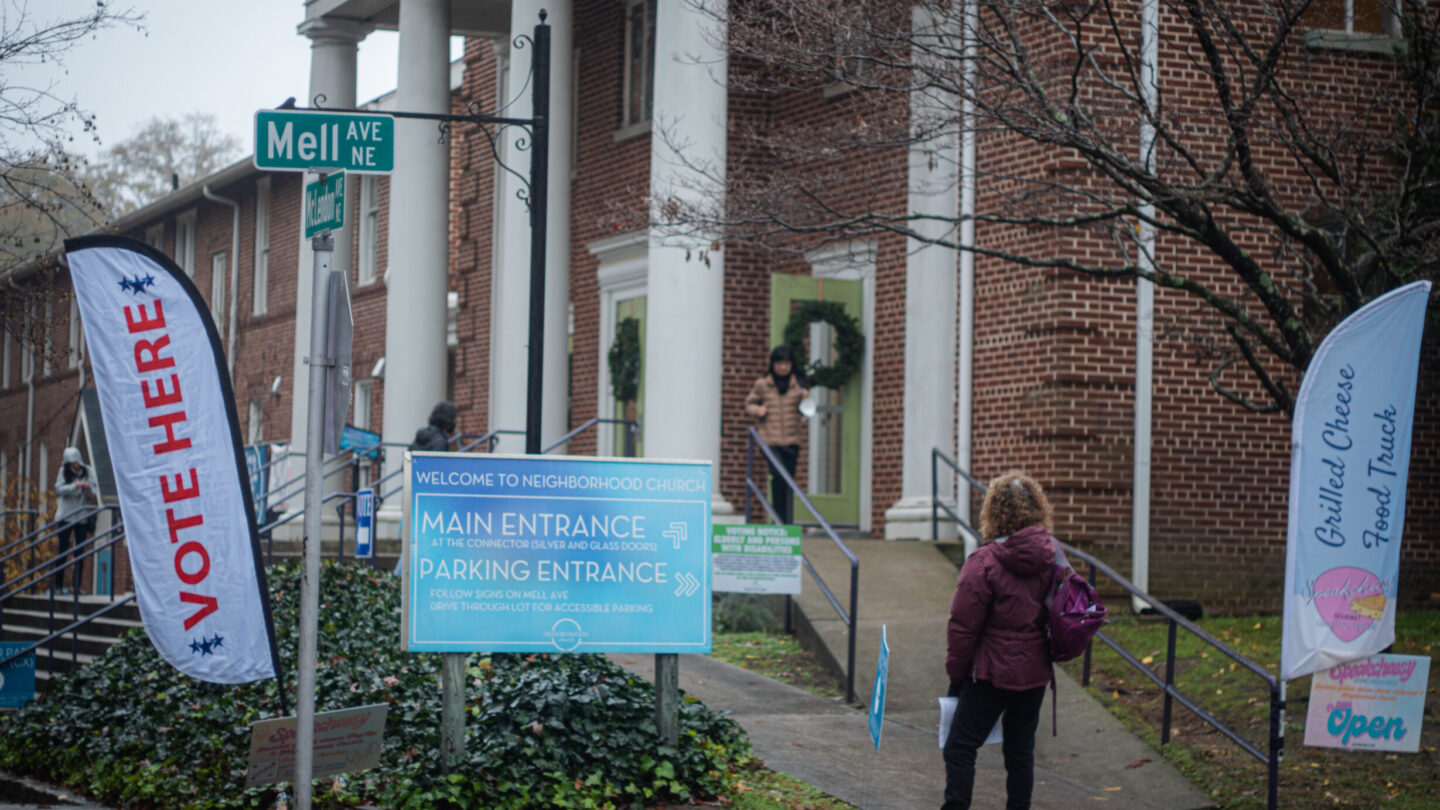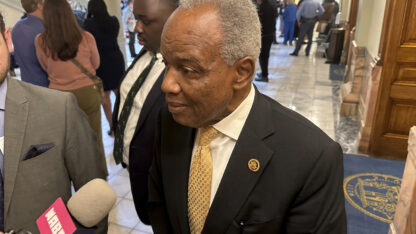This year’s elections in Louisiana didn’t go the way that voting rights advocate Ashley Shelton had hoped, with the far-right conservative attorney general replacing a term-limited Democratic governor and consolidating Republican control in the state.
Turnout was just 37%, despite the efforts of activists like her.
“Even when you work hard and you do all the things you’re supposed to, you get an unfortunate outcome, which was these statewide elections,” said Shelton, the executive director of Power Coalition for Equity & Justice in Louisiana.
She said it will be a challenge to regain trust from the communities of color she typically focuses on, mostly because of a constant drumbeat of disappointments in recent years, from attacks on voting rights to the failure of a sweeping student loan forgiveness plan. While Louisiana is not a battleground for national races, Shelton’s experience in the state serves as a window into some of the challenges President Joe Biden faces as his reelection campaign plans strategies to engage the diverse communities that helped him win in 2020.
Shelton and other activists say they already are looking for messages that will resonate with voters, despite fighting through their own fatigue. That follows recent polling showing that adults in the United States are broadly unenthusiastic about a rematch between Biden and former President Donald Trump at the top of the ticket.
“I don’t have the luxury of being tired or frustrated or exasperated,” she said. “I have to just get back in the community with folks and understand how to reconnect them to the power in their voice.”
Voting advocacy groups that were essential to Biden’s victory are coming into the new year expecting to have a difficult time rebuilding the same level of support, especially among voters of color and younger voters.
Just 33% of nonwhite adults under age 45 approve of Biden’s job performance, according to the most recent Associated Press-NORC Center for Public Affairs research poll. Just as concerning for the Biden camp is the precipitous drop he has seen overall among Black and Hispanic adults from his first months in office, when his approval rating was 86% among Black adults, 63% among Hispanic adults and 49% among white adults. Now those approval rate stand at 50%, 36% and 40%, respectively.
Democratic campaign strategists say they are encouraging more robust outreach to Black voters in key states. Biden’s campaign said it already is laying the groundwork for just such an effort.
Voting activists said they know voters of color are essential for Biden and cited myriad reasons for the drop in support. Among them is the failure to pass a law that would have strengthened voting rights, after numerous Republican-controlled states passed restrictions in the past few years, and Biden’s promise about student loan forgiveness, only to see the Supreme Court kill it.
The Rev. Frederick Haynes, president of the Rainbow PUSH Coalition, the Chicago-based civil rights group founded more than 50 years ago by the Rev. Jesse Jackson, said the Democratic Party needs to tell voters what it has accomplished and what it plans to do beyond next year’s election.
“Rainbow PUSH will be challenging the administration: What are you doing to get the message through the appropriate mediums to the communities that you say you’re serving?” he said.
The Biden campaign agrees and said it is highlighting gains that include delivering on broadband internet access, especially in communities of color, reducing unemployment rates and diversifying the federal judiciary, said Quentin Fulks, the principal deputy campaign manager.
“There’s a lot at stake here, and our job as a campaign is to communicate that. But it has to be mixed with also, ‘What have you done for me and what has the administration done and what will this administration continue to do to try to improve the lives of people?’” Fulks said.
The Trump campaign did not respond to multiple requests for comment.
The Georgia Black Republican Council is planning a radio and billboard campaign highlighting issues it thinks are pertinent to Black voters in a state expected to be closely contested. Among the topics are school choice, immigration and abortion.
Other voting advocates say their messages to communities of color will range from successes, such as continued low unemployment, to explanations about why priorities such as federal voting and police overhaul legislation failed. Statewide issues will be a critical part of their messaging, highlighting book bans, gerrymandered districts and abortion.
Yterenickia Bell, senior director of the And Still I Vote Program at the Leadership Conference Education Fund, will be targeting women of color between age 18 and 35 in 11 states.
“We have to remind them when we go to that door that the country is only as successful as the young people who are engaged,” she said, pointing out that many of the front-line civil rights activists of the 1960s were their age at the time.
Student debt, climate change, health care, abortion and reproductive care will be the selling points to that targeted group, Bell said.
“Black voters are pragmatic voters” and the younger ones are less party-centric and more focused on issues, said LaTosha Brown, co-founder of Black Voters Matter. “At the end of the day, this cannot be an election just around the candidates. It can’t be just Trump. It can’t be just about Biden. It really has to be, ‘How does democracy protect us?’”
As long as the messaging is tailored to meet the needs of a diverse audience and prioritizes the issues they care most about — rather than focusing on personalities and candidates — it will be successful, said Rev. William Barber, co-founder of the Poor People’s Campaign.
The questions should be about who supports health care, higher wages, voting rights and bodily autonomy, he said.
The ground troops might be worn down, Barber said, but “there’s two kinds of tired: There’s a tired when I’m going to quit, and there’s a sick-and-tired but I’m not going to quit because I know I have the power to change this.”









